
Rakiraki: The Hidden Gem of Fiji
Nestled on the northern coast of Viti Levu, Rakiraki is a tranquil escape from the bustling tourist spots of Fiji. This charming town offers a blend of rich history, stunning landscapes, and vibrant local culture, making it an ideal destination for those seeking an authentic Fijian experience. The coastal town is known for its picturesque beaches and crystal-clear waters. Nananu-i-Ra Island, just off the coast, is a paradise for snorkelers and divers, teeming with colorful coral reefs and marine life. For those who prefer land adventures, the lush hills surrounding Rakiraki provide excellent hiking opportunities with breathtaking views of the coastline and the Pacific Ocean. Rakiraki is also steeped in history. The town is home to the tomb of Udre Udre, a legendary Fijian chief known for his unique place in history. Visiting his tomb offers a glimpse into the island's intriguing past. Additionally, the local market is a vibrant spot where visitors can immerse themselves in Fijian culture, sample fresh produce, and purchase handcrafted souvenirs. Whether you're lounging on pristine beaches, exploring underwater worlds, or delving into the rich cultural heritage, Rakiraki promises an unforgettable journey. Its serene environment and warm hospitality make it a perfect retreat for travelers looking to explore Fiji beyond the well-trodden paths.
Local tips in Rakiraki
- Visit Nananu-i-Ra Island for excellent snorkeling and diving experiences.
- Don't miss the local market for fresh produce and unique handcrafted souvenirs.
- Explore the tomb of Udre Udre to learn about Rakiraki's historical significance.
- Bring mosquito repellent, especially if you plan to hike in the surrounding hills.
- Stay hydrated and use sun protection, as the tropical sun can be very strong.
Rakiraki: The Hidden Gem of Fiji
Nestled on the northern coast of Viti Levu, Rakiraki is a tranquil escape from the bustling tourist spots of Fiji. This charming town offers a blend of rich history, stunning landscapes, and vibrant local culture, making it an ideal destination for those seeking an authentic Fijian experience. The coastal town is known for its picturesque beaches and crystal-clear waters. Nananu-i-Ra Island, just off the coast, is a paradise for snorkelers and divers, teeming with colorful coral reefs and marine life. For those who prefer land adventures, the lush hills surrounding Rakiraki provide excellent hiking opportunities with breathtaking views of the coastline and the Pacific Ocean. Rakiraki is also steeped in history. The town is home to the tomb of Udre Udre, a legendary Fijian chief known for his unique place in history. Visiting his tomb offers a glimpse into the island's intriguing past. Additionally, the local market is a vibrant spot where visitors can immerse themselves in Fijian culture, sample fresh produce, and purchase handcrafted souvenirs. Whether you're lounging on pristine beaches, exploring underwater worlds, or delving into the rich cultural heritage, Rakiraki promises an unforgettable journey. Its serene environment and warm hospitality make it a perfect retreat for travelers looking to explore Fiji beyond the well-trodden paths.
When is the best time to go to Rakiraki?
Iconic landmarks you can’t miss
Garden of the Sleeping Giant
Experience the serene beauty of the Garden of the Sleeping Giant, Fiji's enchanting botanical garden, filled with vibrant orchids and lush landscapes.
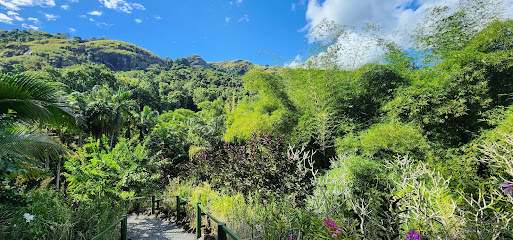
Rakirakiqallau
Experience the cultural heartbeat of Vaileka at Rakirakiqallau, where stunning views meet authentic Fijian hospitality.
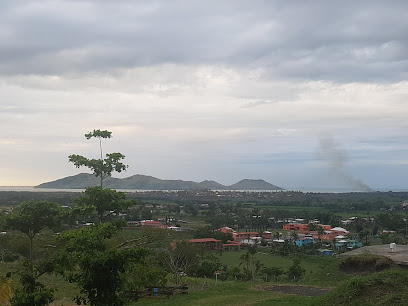
Tanoa Rakiraki Hotel
Discover the beauty of Fiji at Tanoa Rakiraki Hotel, where comfort meets adventure in a stunning tropical paradise.

Golden Point Resort
Experience the allure of Fiji at Golden Point Resort, where luxury meets nature in a tropical paradise.
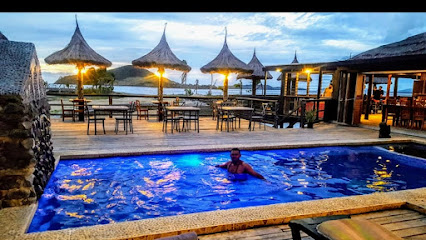
Volivoli Beach Resort
Discover the enchanting Volivoli Beach Resort in Fiji, where adventure meets relaxation in a stunning tropical paradise.

Koroyanitu National Park
Explore the lush landscapes and rich biodiversity of Koroyanitu National Park, a must-visit destination for nature lovers in Fiji.
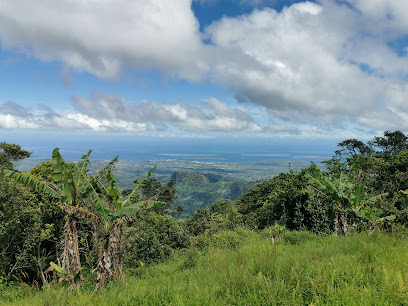
Wananavu Resort
Discover the ultimate tropical getaway at Wananavu Resort, where luxury meets adventure in the heart of Fiji's breathtaking Sun Coast.
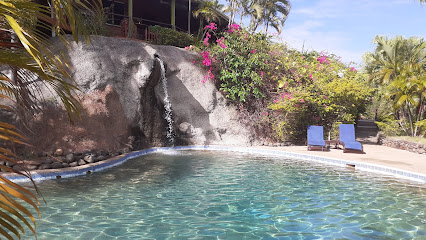
Rakiraki Town Market
Discover the heart of Fijian culture at Rakiraki Town Market, where local produce and handcrafted treasures await every visitor.
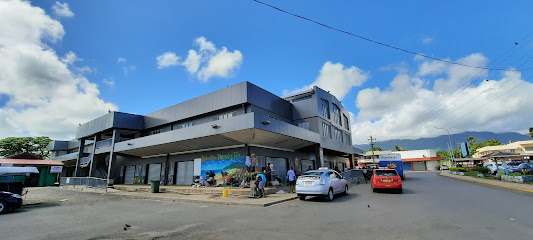
DuaDua Beach Resort
Experience the serenity and beauty of DuaDua Beach Resort, a paradise in Volivoli, Fiji, perfect for relaxation and exciting aquatic adventures.

Dreamview Villas
Experience the ultimate tropical escape at Dreamview Villas in Volivoli, Fiji, where luxury meets breathtaking natural beauty.

Takalana Bay
Discover serene beaches, lush landscapes, and vibrant culture at Takalana Bay, Fiji's perfect retreat for relaxation and adventure.

Tavuni Hill Fort
Explore Tavuni Hill Fort, a historical gem in Fiji, offering breathtaking views and a glimpse into the island's rich cultural heritage.
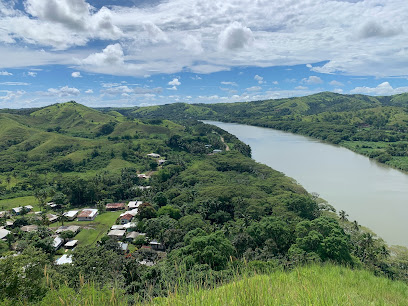
Ring Gold Divers
Discover the underwater wonders of Fiji with Ring Gold Divers, a premier diving center in Navutulevu that promises adventure and unforgettable memories.
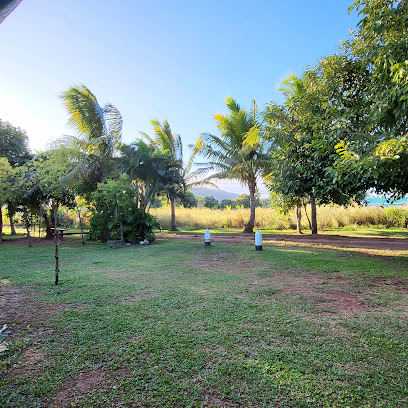
The BeeHive Fiji
Experience the heart of Fiji at The BeeHive Fiji, where comfort meets local charm in the beautiful town of Rakiraki.
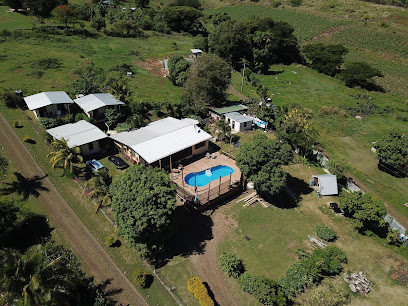
Naihehe Cave
Explore the enchanting Naihehe Cave in Fiji, a historical landmark rich in culture and breathtaking natural beauty, perfect for adventure seekers and history lovers.
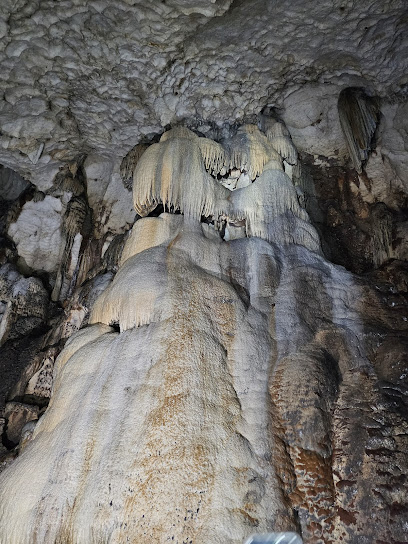
Unmissable attractions to see
Volivoli Beach Resort
Discover Fiji's underwater paradise at Volivoli Beach Resort: world-class diving, stunning views, and authentic Fijian hospitality on the Suncoast.

Wananavu Resort
Escape to Wananavu Beach Resort: Dive into Fiji's beauty, culture, and tranquility on the Sun Coast. Your idyllic island getaway awaits!
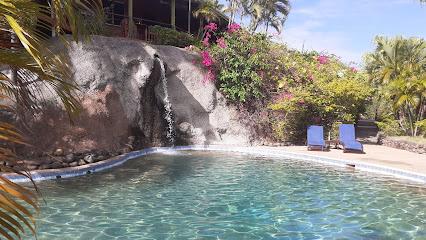
Waterfall rest stop
Take a refreshing break at this scenic roadside stop on Fiji's Kings Road, featuring a tranquil waterfall and beautiful natural surroundings.
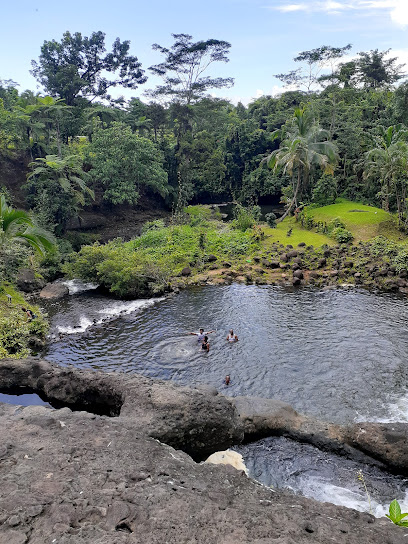
Ring Gold Divers
Discover Fiji's underwater wonders with Ring Gold Divers in Navutulevu: vibrant reefs, diverse marine life, and unforgettable diving adventures.
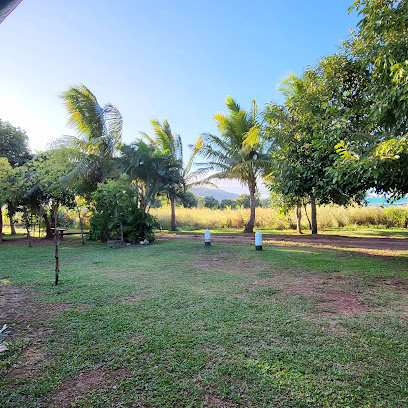
Nakoroloaloa Cave
Explore Fiji's Nakoroloaloa Cave: Discover stunning limestone formations and ancient legends in this natural and cultural treasure.
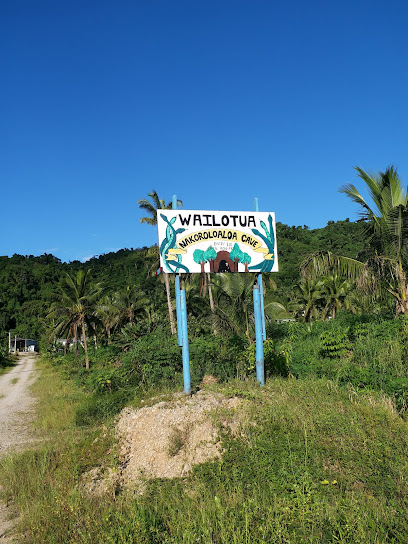
Davui
Escape to Davui Park in Rakiraki, Fiji: A serene oasis of lush landscapes, vibrant nature, and tranquil beauty awaits your discovery.
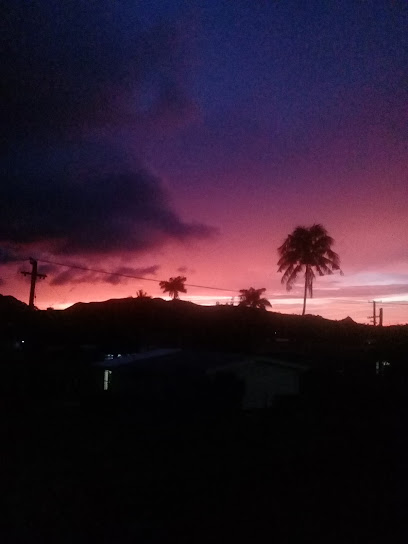
Vuwa Falls
Discover Vuwa Falls: Fiji's breathtaking natural wonder offering stunning waterfalls, lush landscapes, and a tranquil escape in Tubarua.
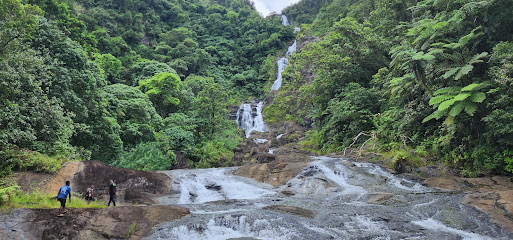
Moon Reef
Discover Fiji's Moon Reef: A sanctuary for spinner dolphins and vibrant coral reefs, offering unforgettable snorkeling and wildlife encounters.
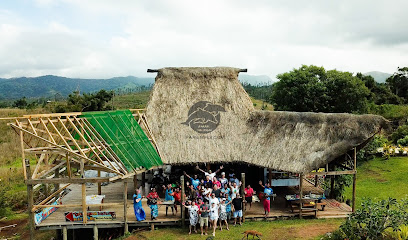
Vatia Cruise Liner Wharf
Experience the beauty of Fiji! Vatia Cruise Liner Wharf: Your gateway to tropical paradise, excursions, and authentic Fijian culture.
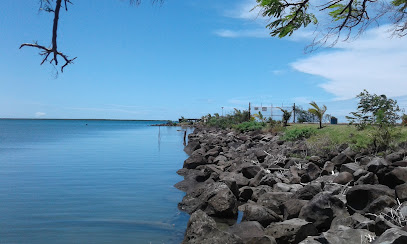
Domoika Adventures
Discover Fiji's highlands: Hike through lush landscapes and experience authentic Fijian culture with Domoika Adventures.
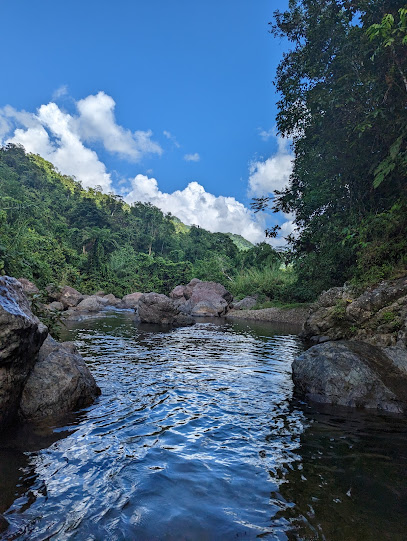
Barkley Point
Discover breathtaking landscapes & tranquil trails at Barkley Point, Nadrau – Fiji's hidden gem for nature lovers & adventurers!
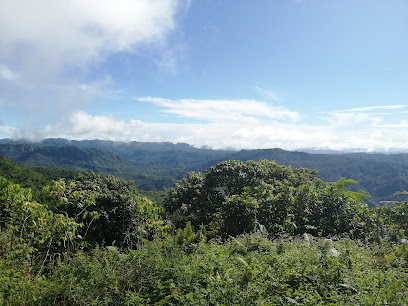
Zatara Flats
Experience the serene beauty and cultural richness of Zatara Flats in Natunuku, Fiji – a hidden gem for every traveler seeking tranquility.

Ovea round village
Discover Ovea Round Village in Fiji: Experience vibrant culture, stunning architecture, and the welcoming spirit of the Fijian people.
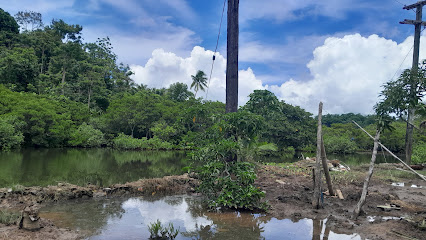
Rest Stop - Navolau
Experience the beauty and tranquility of Navolau Rest Stop, a charming oasis in Fiji perfect for unwinding and enjoying local culture.
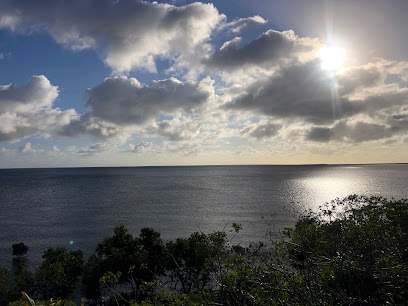
silana village beach
Discover Silana Village Beach: a serene Fijian paradise with white sands, clear waters, and vibrant coral reefs, perfect for relaxation and adventure.
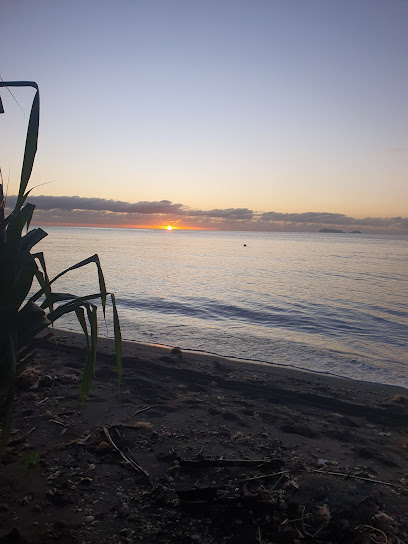
Essential places to dine
Rakirakiqallau
Explore Rakirakiqallau in Vaileka - A vibrant community center showcasing Fijian culture and hospitality amidst breathtaking landscapes.
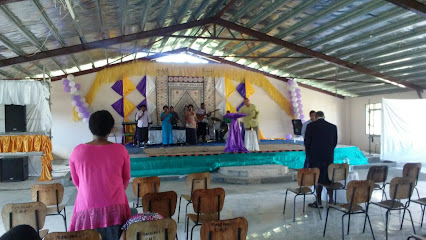
Tanoa Rakiraki Hotel
Discover tranquility at Tanoa Rakiraki Hotel – your gateway to authentic Fijian experiences amidst stunning natural beauty.

Golden Point Resort
Discover the perfect blend of relaxation and adventure at Golden Point Resort in Fiji, where stunning ocean views meet exceptional dining experiences.
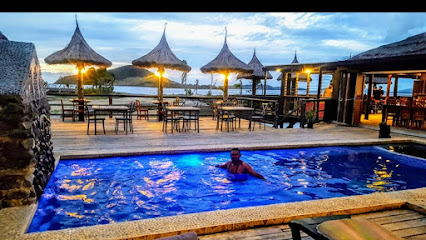
Volivoli Beach Resort
Discover tranquility at Volivoli Beach Resort in Fiji - your gateway to adventure with diving, fishing, and stunning ocean views.

Wananavu Resort
Discover paradise at Wananavu Resort in Fiji – your ultimate getaway for relaxation and thrilling underwater adventures.
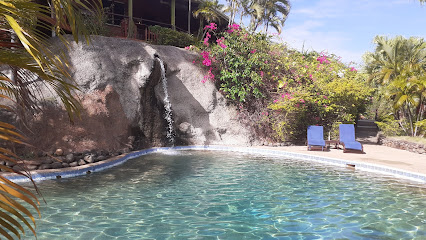
DuaDua Beach Resort
Experience ultimate relaxation at DuaDua Beach Resort – your gateway to breathtaking beaches and vibrant Fijian culture.

Rakiraki Town Market
Explore Rakiraki Town Market: A vibrant farmers' market brimming with fresh produce, artisanal crafts, and authentic Fijian flavors.
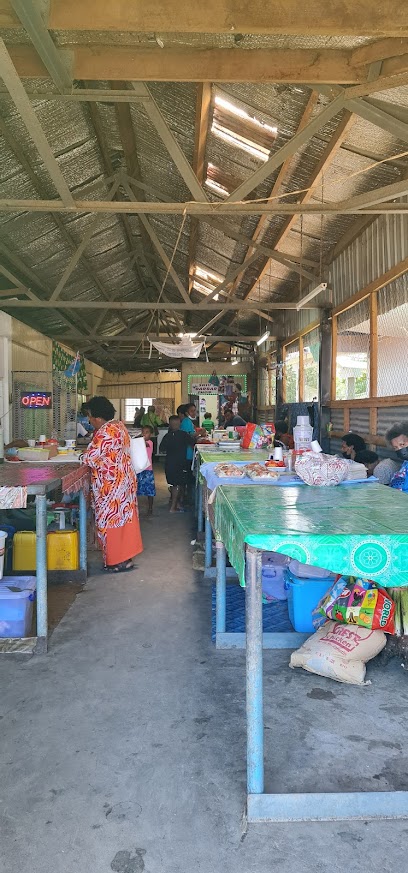
The Beach Club Wailoaloa
Experience tropical dining at its finest at The Beach Club Wailoaloa - where stunning beach views meet delicious grill flavors.
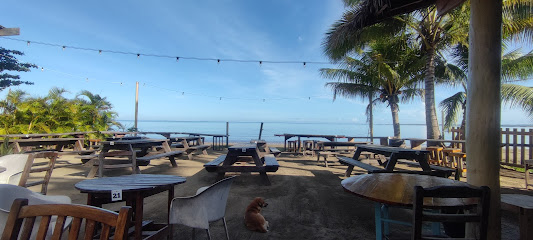
Ocean Terrace Restaurant at Bedarra Beach Inn
Experience exquisite Fijian cuisine with breathtaking ocean views at Ocean Terrace Restaurant on Coral Coast.
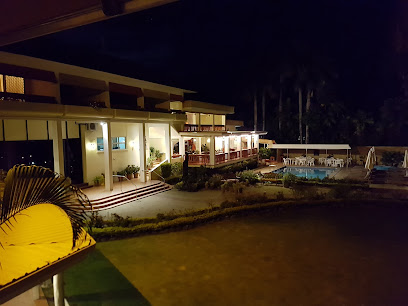
Tukuni Restaurant
Experience authentic Fijian seafood at Tukuni Restaurant, where local flavors meet warm hospitality in every dish.
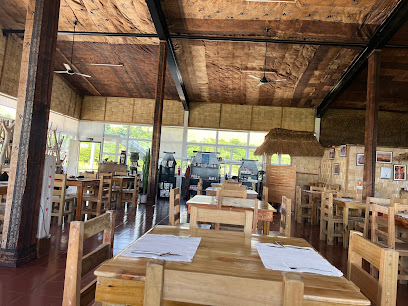
Getaway Fastfood and Coffee Shop
Discover delicious fast food and aromatic coffee at Getaway Fastfood and Coffee Shop in Raravatu, Fiji - perfect for travelers on the move.
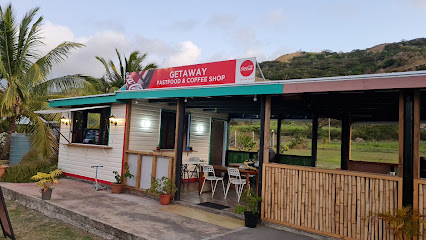
Korea Garden Restaurant
Savor the flavors of Korea at Korea Garden Restaurant in Lautoka - where authentic cuisine meets warm hospitality.
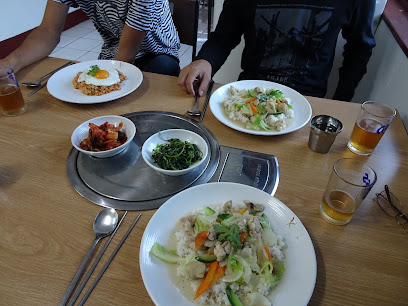
Bethams Beach Cottage
Experience unparalleled serenity at Bethams Beach Cottage - your perfect beachfront getaway in beautiful Fiji.

The BeeHive Fiji
Discover comfort and tranquility at The BeeHive Fiji - your ideal retreat for relaxation and adventure amidst stunning landscapes.
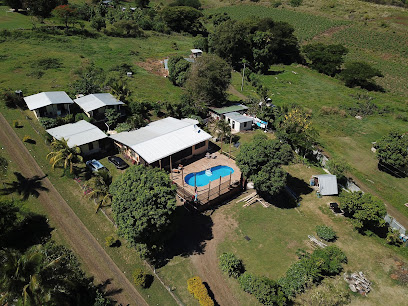
Joji and Alisi's Place
Discover unparalleled comfort at Joji and Alisi's Place in Rakiraki - your gateway to Fiji's stunning landscapes and warm local hospitality.
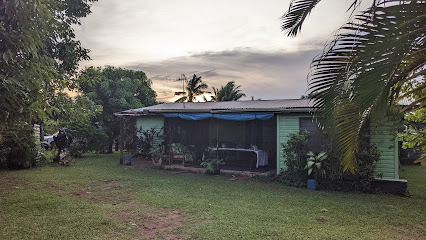
Markets, malls and hidden boutiques
Damodar City
Explore Damodar City: Suva's premier shopping destination, offering diverse retail, dining, and entertainment experiences in the heart of Fiji.
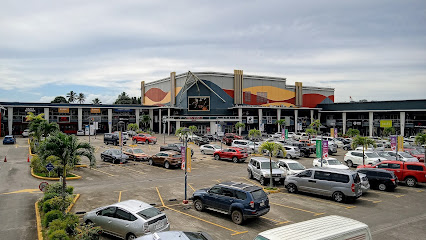
MHCC
Discover the vibrant shopping scene at MHCC, Suva's largest mall offering diverse retail and dining experiences in the heart of Fiji.
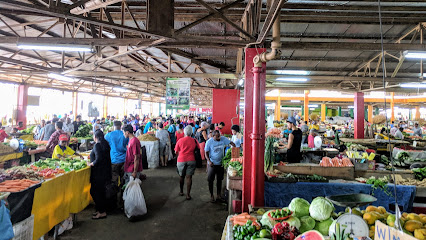
TappooCity Suva
Explore TappooCity Suva, Fiji's largest shopping mall, where local culture meets international shopping and dining experiences.
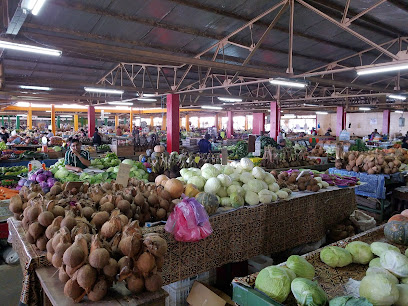
TappooCity Lautoka
Experience the vibrant shopping scene at TappooCity Lautoka, where local culture meets international brands in a tropical paradise.
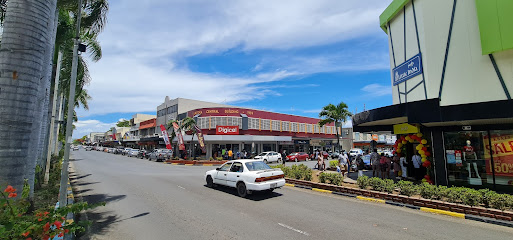
Rups Mega Centre Nakasi
Experience the bustling atmosphere of Rups Mega Centre Nakasi, a premier shopping mall in Suva, Fiji, featuring diverse shops and delectable dining options.
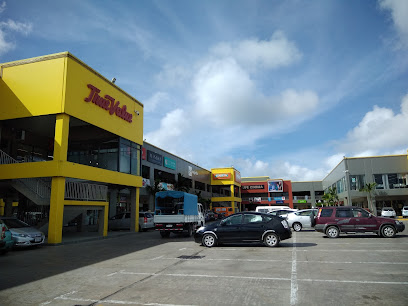
NEWWORLD IGA
Experience the best of Fijian shopping at NEWWORLD IGA in Nadi, where local flavors meet global convenience.
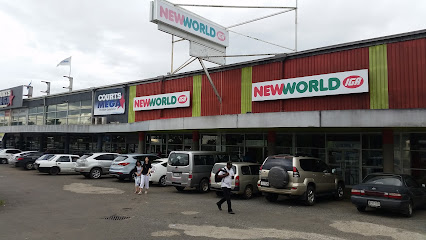
MH Superfresh
Experience the vibrant shopping atmosphere of MH Superfresh in Suva, Fiji, where local goods, diverse dining, and affordability meet.
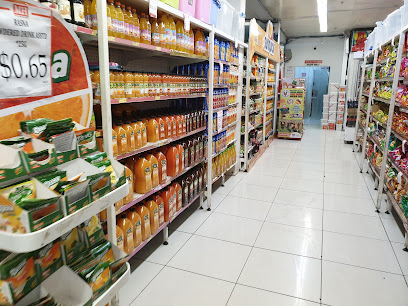
Rakirakiqallau
Immerse yourself in the vibrant culture and warm hospitality of Rakirakiqallau, a true community gem in Vaileka, Fiji.
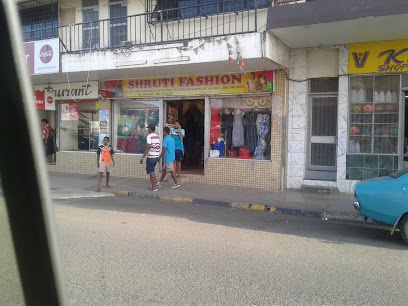
Fresh Choice Supermarket
Experience the heart of Fijian shopping at Fresh Choice Supermarket in Suva, where local flavors meet everyday essentials.
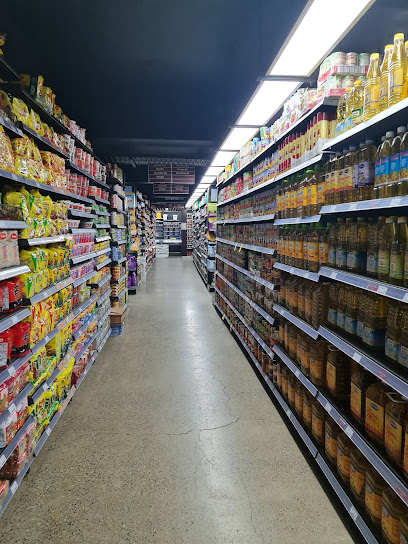
Shop N Save Supermarket
Discover the vibrant offerings of Shop N Save Supermarket in Tavua, where local flavors meet everyday convenience in the heart of Fiji.
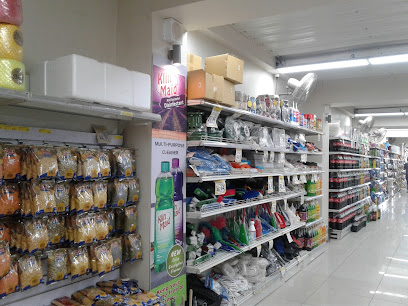
Golden Point Resort
Experience the ultimate tropical getaway at Golden Point Resort, a serene haven in Fiji with stunning views, luxurious amenities, and unforgettable adventures.
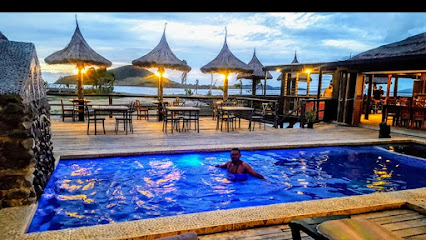
Volivoli Beach Resort
Experience the ultimate tropical getaway at Volivoli Beach Resort, where adventure meets relaxation in the heart of Fiji.

DuaDua Beach Resort
Experience the ultimate tropical getaway at DuaDua Beach Resort, where luxury meets the beauty of Fiji's pristine beaches and rich culture.

Rakiraki Town Market
Experience the essence of Fiji at Rakiraki Town Market, where local flavors, crafts, and community come together in a vibrant setting.
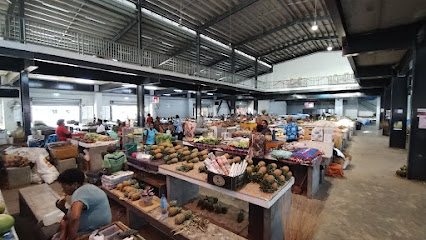
Courts Mega Store Nadi
Discover a world of shopping at Courts Mega Store Nadi, where quality meets variety in the heart of Fiji.
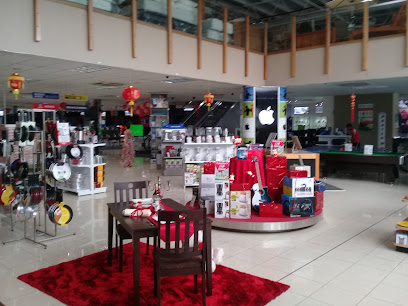
Essential bars & hidden hideouts
Tanoa Rakiraki Hotel
Experience the beauty and tranquility of Fiji at Tanoa Rakiraki Hotel, your perfect getaway surrounded by nature and culture.

Golden Point Resort
Discover the beauty of Fiji at Golden Point Resort, where relaxation meets adventure in a tropical paradise.
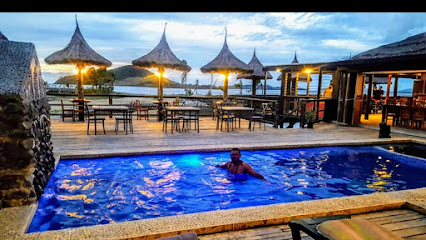
Volivoli Beach Resort
Discover the ultimate tropical retreat at Volivoli Beach Resort, a stunning haven with diving, fishing, and relaxation in beautiful Fiji.

Getaway Fastfood and Coffee Shop
Discover the flavors of Raravatu at Getaway Fastfood and Coffee Shop, a perfect blend of fast food and coffee in a tropical setting.
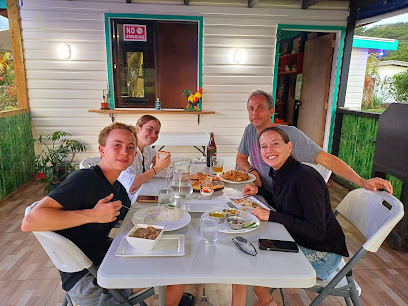
Bethams Beach Cottage
Experience the serene charm of Bethams Beach Cottage, a perfect retreat in Rakiraki, Fiji, blending relaxation with adventure.

The BeeHive Fiji
Discover the serene beauty of The BeeHive Fiji, a perfect blend of comfort and adventure in Rakiraki's idyllic countryside.
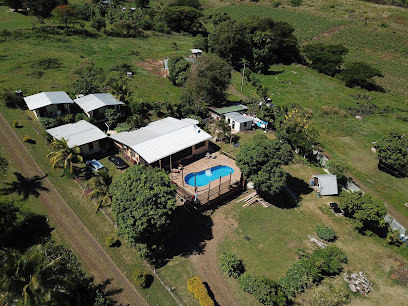
Namuaimada Beach
Experience the tranquil beauty of Namuaimada Beach in Fiji, a serene escape perfect for families and sun-seekers alike.
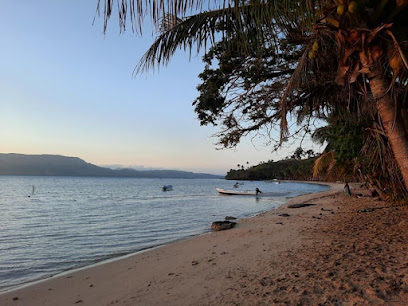
Sue's Restaurant
Experience the authentic flavors of Fiji at Sue's Restaurant in Vaileka, where local cuisine meets warm hospitality.
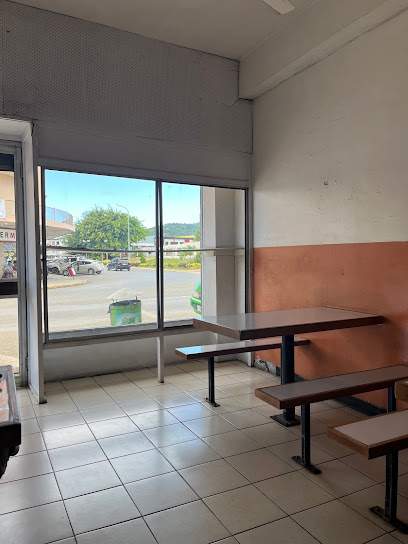
Danny's Grog Shop
Experience the vibrant local nightlife at Danny's Grog Shop in Nailaga, where drinks flow and good times abound in a true Fijian setting.

A.Gafoor Restaurant
Experience the vibrant flavors of local and international cuisine at A.Gafoor Restaurant in Vaileka, Fiji - a must-visit for every food lover.
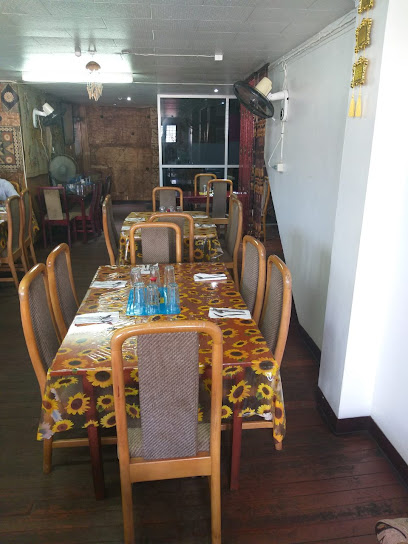
Pub Heaven Sports & Kava Bar
Discover the lively ambiance of Pub Heaven Sports & Kava Bar in Ba, where sports, kava, and camaraderie come together for an unforgettable experience.
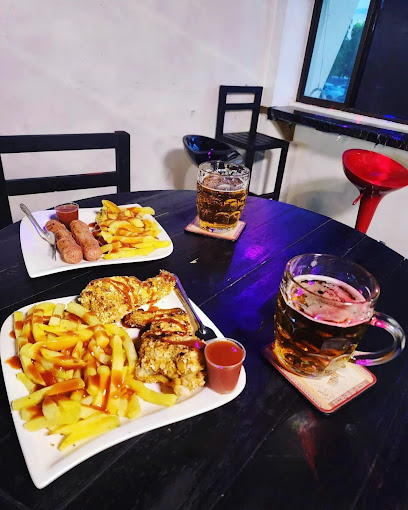
Mataniwai House
Explore the vibrant Mataniwai House in Fiji, a tropical bar offering refreshing drinks, stunning views, and a taste of island life.
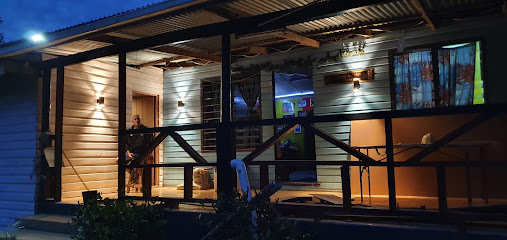
Vineels kava shop
Experience the heart of Fijian culture at Vineels Kava Shop, where relaxation and tradition blend seamlessly in every sip.
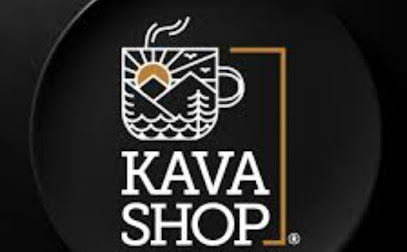
Manju's Fastfood And Takeaway
Experience the authentic flavors of Fiji at Manju's Fastfood And Takeaway, a beloved local restaurant in Rakiraki.

Local Phrases
-
- HelloBula
[boo-lah] - GoodbyeMoce
[moh-they] - YesIo
[ee-oh] - NoSega
[seng-ah] - Please/You're welcomeVinaka
[vee-nah-kah] - Thank youVinaka vaka levu
[vee-nah-kah vah-kah lay-voo] - Excuse me/SorryTulou
[too-loh] - How are you?Ni sa bula?
[nee sah boo-lah] - Fine. And you?Vinaka. Iko?
[vee-nah-kah ee-koh] - Do you speak English?E vosa vakaviti na nomu vakamacala?
[ay voh-sah vah-kah-vee-tee nah noh-moo vah-kah-mah-thah-lah] - I don't understandAu sega ni kila
[ow seng-ah nee kee-lah]
- HelloBula
-
- I'd like to see the menu, pleaseAu vinakata me raici na menu, vinaka
[ow vee-nah-kah-tah meh rah-thee thee nah meh-noo, vee-nah-kah] - I don't eat meatAu sega ni kana lewe ni manumanu
[ow seng-ah nee kah-nah leh-weh nee mah-noo-mah-noo] - Cheers!Bula vinaka!
[boo-lah vee-nah-kah] - I would like to pay, pleaseAu vinakata me sauma, vinaka
[ow vee-nah-kah-tah meh sah-oo-mah, vee-nah-kah]
- I'd like to see the menu, pleaseAu vinakata me raici na menu, vinaka
-
- Help!Vukea!
[voo-kay-ah] - Go away!Lako yani!
[lah-koh yahn-ee] - Call the Police!Kaciva na Police!
[kah-thee-vah nah poh-lee-say] - Call a doctor!Kaciva e dua na dokita!
[kah-thee-vah ay doo-ah nah doh-kee-tah] - I'm lostAu sa lavea
[ow sah lah-veh-ah] - I'm illAu sa lialia
[ow sah lee-ah-lee-ah]
- Help!Vukea!
-
- I'd like to buy...Au vinakata me volitaki...
[ow vee-nah-kah-tah meh voh-lee-tah-kee] - I'm just lookingAu sa qara tiko
[ow sah ngah-rah tee-koh] - How much is it?E vica na nona lavo?
[ay vee-thah nah noh-nah lah-voh] - That's too expensiveSa levu sara na nona lavo
[sah lay-voo sah-rah nah noh-nah lah-voh] - Can you lower the price?Vosoti kina na lavo?
[voh-soh-tee kee-nah nah lah-voh]
- I'd like to buy...Au vinakata me volitaki...
-
- What time is it?Ei kena gauna oqo?
[ay keh-nah ngah-oon-ah oh-ngoh] - It's one o'clockE dua ga
[ay doo-ah ngah] - Half past (10)Na mataka sa
[nah mah-tah-kah sah] - MorningNa siga ni veivakurabuitaki
[nah see-ngah nee vay-ee-vah-koo-rah-boo-ee-tah-kee] - AfternoonNa siga ni vakarau
[nah see-ngah nee vah-kah-rah-oo] - EveningNa siga ni vakarau
[nah see-ngah nee vah-kah-rah-oo] - YesterdayNikua
[nee-koo-ah] - TodayNi siga oqo
[nee see-ngah oh-ngoh] - TomorrowMataka
[mah-tah-kah] - 1Dua
[doo-ah] - 2Rua
[roo-ah] - 3Tolu
[toh-loo] - 4Va
[vah] - 5Lima
[lee-mah] - 6Ono
[oh-noh] - 7Vitu
[vee-too] - 8Walu
[wah-loo] - 9Ciwa
[thee-wah] - 10Tini
[tee-nee]
- What time is it?Ei kena gauna oqo?
-
- Where's a/the...?Evei na...
[ay-veh-ee nah] - What's the address?A cava na sala?
[ah thah-vah nah sah-lah] - Can you show me (on the map)?Vosoti au na masima?
[voh-soh-tee ow nah mah-see-mah] - When's the next (bus)?Evei na mataka e muri?
[ay-veh-ee nah mah-tah-kah ay moo-ree] - A ticket (to ....)E dua na tiketi (ki...)
[ay doo-ah nah tee-kay-tee kee]
- Where's a/the...?Evei na...
History of Rakiraki
-
Rakiraki, located on the northern coast of Viti Levu, Fiji's largest island, has a rich history that dates back to its early settlement by Melanesian and Polynesian peoples. The area's fertile land and abundant marine resources made it an attractive location for these early communities, who established small villages and lived off agriculture and fishing.
-
During the late 19th and early 20th centuries, Fiji came under British colonial rule. The introduction of the sugarcane industry significantly impacted Rakiraki, with large tracts of land being converted to sugarcane plantations. The Penang Sugar Mill, established in 1878, became a central hub for the local economy, attracting laborers from India and other parts of the Pacific.
-
Rakiraki played a strategic role during World War II, serving as a base for Allied forces in the Pacific theater. The town's proximity to the coast made it an ideal location for military installations, including airstrips and supply depots. The presence of Allied forces brought about infrastructural developments and increased interaction with the global community.
-
Fiji gained independence from British colonial rule in 1970, and Rakiraki began to evolve into a more diverse and vibrant community. The sugarcane industry continued to be a major economic driver, but tourism also started to take root. The town's picturesque landscapes, including its beautiful beaches and lush hinterlands, attracted visitors from around the world.
-
Rakiraki is home to a rich tapestry of cultural traditions, influenced by its indigenous Fijian roots and the diverse communities that have settled there over the years. Traditional ceremonies, music, dance, and crafts are integral to the local culture. The town hosts numerous festivals and events that celebrate this heritage, providing visitors with an authentic glimpse into Fijian life.
-
In 2016, the Penang Sugar Mill, a cornerstone of Rakiraki's economy for nearly 140 years, was permanently closed due to damage sustained from Cyclone Winston. The closure marked the end of an era and posed significant challenges for the local community. Efforts have since been made to diversify the economy and promote sustainable development in the region.
-
Today, Rakiraki is a thriving town that balances its rich historical heritage with modern advancements. It continues to be a focal point for agriculture, particularly sugarcane and other crops, while also embracing tourism as a key economic sector. The town's warm hospitality, stunning natural scenery, and cultural vibrancy make it a unique destination for travelers.
Rakiraki Essentials
-
Rakiraki is located on the northern coast of Viti Levu, the largest island in Fiji. The nearest international airport is Nadi International Airport, approximately 120 kilometers away. From Nadi, you can take a taxi, bus, or rent a car to reach Rakiraki. The journey typically takes around 2.5 to 3 hours by road via the Kings Road. Alternatively, you can opt for domestic flights to Nausori Airport in Suva and then travel by road.
-
Rakiraki is a small town, and many of its attractions are within walking distance. For longer trips, local buses and taxis are readily available. Buses are a cost-effective option and connect Rakiraki to nearby towns and villages. Renting a car can also be a convenient choice for exploring the area at your own pace. Bicycles are another popular mode of transport for both locals and tourists.
-
The official currency in Fiji is the Fijian Dollar (FJD). Credit cards are accepted in most hotels, restaurants, and shops, but it is advisable to carry some cash, especially in smaller establishments and rural areas. ATMs are available in Rakiraki, but it is wise to withdraw sufficient cash in larger towns like Nadi or Suva before traveling to ensure you have enough funds.
-
Rakiraki is generally a safe destination for tourists. However, it is advisable to take standard precautions. Avoid walking alone at night in unfamiliar areas and keep an eye on your belongings in crowded places. There are no specific high-crime areas targeting tourists, but staying vigilant and aware of your surroundings is always a good practice.
-
In case of an emergency, dial 911 for immediate assistance. Rakiraki has a local police station and medical facilities. It is recommended to have travel insurance that covers medical emergencies. For minor health issues, there are pharmacies in the town where you can purchase over-the-counter medications.
-
Fashion: Do dress modestly, especially when visiting religious sites. Avoid wearing revealing clothing. Religion: Do respect local customs and traditions. Always remove your shoes and cover your head when entering temples. Public Transport: Do be respectful and give up your seat to elderly passengers. Don’t eat or drink on public transport. Greetings: Do greet people with a friendly 'Bula' (hello) and a smile. A handshake is also common. Eating & Drinking: Do try local delicacies and accept food offerings graciously. Don’t refuse hospitality, as it is considered impolite.
-
To experience Rakiraki like a local, visit the local markets where you can buy fresh produce and traditional Fijian goods. Engage with locals, as they are often friendly and willing to share stories about the town's history and culture. Don't miss visiting the nearby resorts and beaches, which offer a more laid-back and authentic Fijian experience. For a unique experience, participate in a kava ceremony, which is an important cultural tradition in Fiji.
Trending Landmark in Rakiraki
Nearby Cities to Rakiraki
-
Things To Do in Savusavu
-
Things To Do in Labasa
-
Things To Do in Ba
-
Things To Do in Lautoka
-
Things To Do in Levuka
-
Things To Do in Nausori
-
Things To Do in Nadi
-
Things To Do in Suva
-
Things To Do in Sigatoka
-
Things To Do in Kolovai
-
Things To Do in Vava'u
-
Things To Do in Ha'apai
-
Things To Do in Nuku'alofa
-
Things To Do in Pangai
-
Things To Do in Foa






